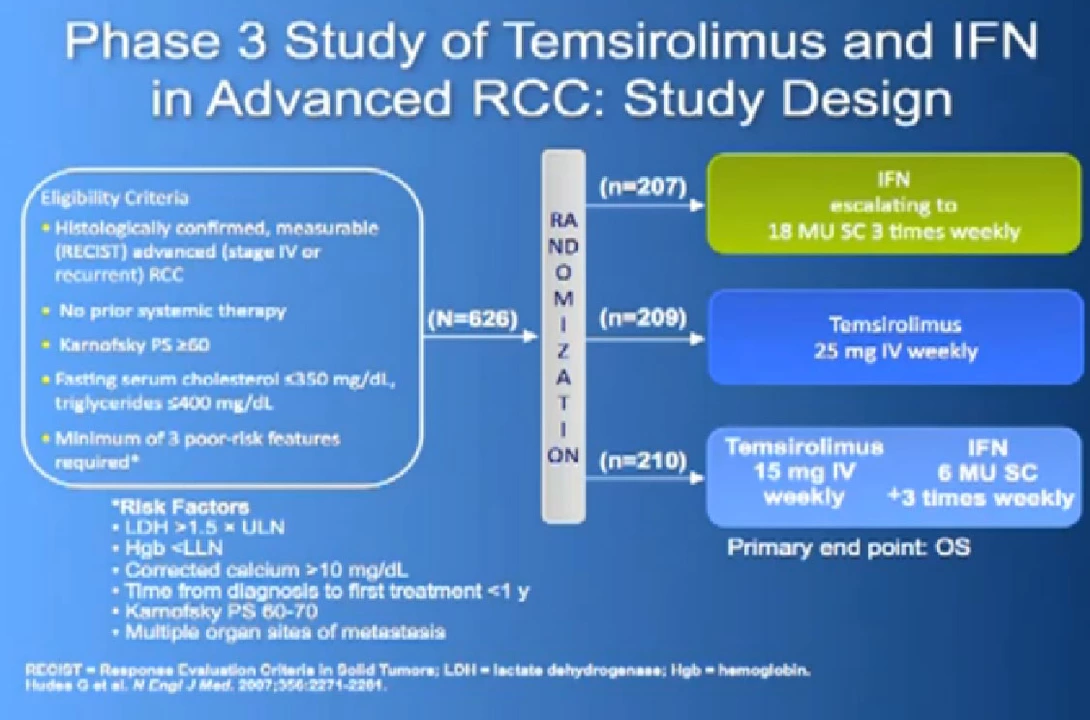Oncology: What You Need to Know About Myeloma and Kidney Cancer
Cancer terms can feel overwhelming, but practical facts make decisions easier. This page brings clear, useful notes about multiple myeloma and advanced renal cell carcinoma so you can act with confidence.
What is changing in myeloma care?
Immunotherapy is a real game changer. New antibody drugs and CAR-T therapies can target myeloma cells more precisely than older chemo. Clinical teams are also using genetic tests to spot mutations that affect drug choice. That means some patients move faster to targeted treatments with fewer rounds of traditional chemotherapy. If your care team mentions a trial, ask what the expected benefits are and what side effects to expect.
How biomarkers help in kidney cancer
Biomarkers are measurable signs that tell doctors which therapies might work. For advanced renal cell carcinoma, tests can show whether a tumor is likely to respond to immunotherapy, targeted therapy, or a combination. Biomarkers also help track how well treatment is working over time. Bring test results to visits and ask how they change your options. If a biomarker suggests a low chance of response, ask about alternative drugs or trials that target the same pathway.
Two things to ask your doctor right now: 1) Which tests will change my treatment plan? 2) What clinical trials are available locally or online? Clear answers to these two questions often open better options fast.
Practical tips for side effect management. Keep a simple symptom log with dates, severity, and triggers. Share this at each visit. Ask for anti-nausea or pain options you can take at home. For immune-related side effects from newer therapies, report rashes, breathing changes, or sudden fatigue immediately. Early action keeps problems small.
When to consider a second opinion. If your diagnosis is complex, the recommended plan includes high-risk drugs, or you face major surgery, a second opinion can reassure you or reveal alternatives. Use tumor boards, academic centers, or specialist clinics that list expertise in myeloma or kidney cancer.
Finding trials and reliable info. Look for trial listings with clear eligibility, location, and contact info. Read trial summaries and ask study coordinators for real-world expectations. For straightforward medication facts, our site collects drug details, dosing basics, and known interactions. Use that information to prepare questions, not to self-prescribe.
Support for caregivers. Caregivers should track meds, appointments, and symptom logs. Ask the clinic about nurse navigators or social work support. Small steps like a shared calendar and a labeled pill box reduce stress.
Read our detailed posts on myeloma advances and biomarkers in renal cell carcinoma for deeper info, practical checklists, and links to trusted resources. Bookmark this page and bring it to clinic visits as a quick reference.
Quick checklist before appointments: bring recent test results and a list of current medications, note symptom changes, prepare two specific questions about treatment goals and side effect management, and bring a friend or caregiver to help record answers and next steps and ask about financial support options.

Alpelisib Clinical Trial Results Explained
A deep dive into alpelisib's key clinical trials, efficacy numbers, safety profile, and how the drug fits into today’s breast cancer treatment landscape.
Read More
How Exercise Helps Prevent and Recover from Pancreatic Cancer
Learn how regular exercise can lower the risk of pancreatic cancer, support treatment tolerance, and speed recovery, with practical workout plans and safety tips.
Read More
Liver Cancer & Sexuality: Overcoming Intimacy Challenges
Explore how liver cancer affects intimacy, learn coping strategies for sexual side effects, and discover practical tips for patients and partners navigating this sensitive journey.
Read More
Targeted Therapy in Cancer Treatment: How It Works & Benefits
Explore how targeted therapy transforms cancer care, the science behind it, key biomarkers, treatment options, benefits, and future trends.
Read MoreAdvances in Myeloma Research: What the Future Holds
In recent years, we've seen incredible advancements in myeloma research, giving hope for a brighter future for patients. Scientists are making strides in understanding the biology of this cancer, leading to the development of new treatments and therapies. One such breakthrough is immunotherapy, which is showing promising results in targeting and eliminating myeloma cells. Additionally, researchers are working to identify genetic markers for early detection, potentially leading to more effective treatment plans. As a result, the future of myeloma research looks promising, and I'm optimistic that we'll continue to see significant progress in the fight against this disease.
Read More
The Role of Biomarkers in Advanced Renal Cell Carcinoma Treatment
As a blogger, I've been researching the role of biomarkers in advanced renal cell carcinoma treatment. Biomarkers have emerged as crucial tools for predicting patient outcomes and personalizing therapy. They help clinicians to determine which patients are more likely to respond to specific treatments, such as immunotherapy or targeted therapy. Additionally, biomarkers can also help monitor treatment effectiveness and detect disease recurrence. Overall, incorporating biomarkers into advanced renal cell carcinoma treatment can significantly improve patient care and outcomes.
Read More